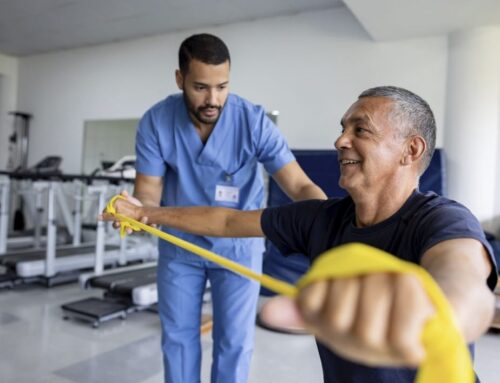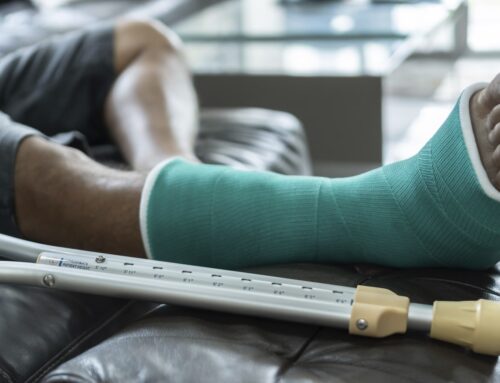Many Americans experience back pain. In fact, back pain is one of the most common orthopaedic issues. Studies indicate that around 80 percent of adults report low back pain at some point in their lives.
Usually lasting only a few days to a few weeks, most back problems are considered short-term or acute. The discomfort often resolves on its own with minimal intervention, such as anti-inflammatories, reduced activities, and in some cases, short bed rest.
Back pain is considered chronic when it lasts for 12 weeks or longer. Roughly 20 percent of those with acute low back pain develop a chronic condition. Seeking orthopaedic care can help with relief of symptoms and improvement in the activities of daily living.
Whether acute or chronic, back pain is a significant concern for a great number of the population. It can cause missed work, discomfort, disability and a loss of well-being. Proper diagnosis and care are essential for symptom relief and improvement in quality of life issues.
It doesn’t help that there are many myths about back pain and misconceptions. These misconceptions can keep you from receiving proper care or preventing back pain. If you have back pain, it’s important to understand the facts. Here are some of the most common back pain myths.
Myths About Back Pain
Myth #1: Exercise can cause back pain
Just the opposite. If you’re not physically active, you’re more likely to experience back pain. Exercise helps to strengthen abdominal and back muscles, which in turn support and stabilize the spine. Daily, moderate levels of physical exercise — such as walking or low-impact aerobics — are recommended. Back injuries happen more frequently for “weekend warriors.” So being inactive all week and binge exercising on the weekend may not be in your best interest.
Myth #2: Pain is always from injury
While back pain can be the result of an injury, other causes are possible. Medical conditions such as tumors, kidney stones, fibromyalgia and some spinal infections can cause back pain. Some conditions of the spine, including disc degeneration or congenital anomalies, may contribute as well. Proper diagnosis is key if you have on-going pain.
Myth #3: Bed rest is always the answer
On the contrary, prolonged bed rest can actually worsen your symptoms and slow down the recovery process. Though you may need a few days rest, depending on the severity of the injury, light exercise is typically recommended. Walking and stretching — even swimming — are beneficial types of movement that can actually accelerate healing.
Myth #4: Herniated discs need to be surgically repaired
If your spinal discs weaken, they may herniate or rupture, causing the discs to leak. This irritates the surrounding nerves, resulting in back and leg pain. Though the condition sounds frightening, greater than 90 percent of ruptured or herniated discs improve on their own. The usual course of treatment includes reduced activity and anti-inflammatories. Physical therapy may also help, depending on your medical circumstances.
Myth #5: If you’re physically active, you won’t get back pain
Not necessarily. Though exercise can help strengthen the muscles along your spine and increase flexibility, it does not make you immune to back pain. Overexertion, a new exercise routine, congenital spinal irregularities — and even the day-to-day wear and tear on your spine as you age — are some of the factors that can contribute to back pain.
Myth #6: Bulging discs are a major medical problem
Bulging discs are not considered a major medical problem. In fact, they are a normal part of growing older and the reason we become shorter with age. Only a small number of patients experience pain from bulging discs. Most of us are unaware when bulging discs happen.
Myth #7: If you go see a spine specialist, you will always end up having surgery
Only about five percent of those with back problems end up needing surgery. There are specific situations, based on your medical condition, when surgery is necessary. But most back injuries never require surgery. An orthopaedic spine specialist would only recommend surgery after all other treatment interventions were unsuccessful.
Orthopaedic spine doctors in the Triangle
As you can tell from many of these myths about back pain, there is often confusing information and various misconceptions about the prevention, causes and treatment of spinal conditions. When it comes to back pain, many people shy away from treatment, hoping it will eventually go away, and sometimes it will. But in a significant number of cases, a medical assessment is beneficial to fully diagnose the issue and get you on right track with proper treatment.
Cary Orthopaedic Spine Center is the region’s only comprehensive spine specialty practice, offering full-service care to patients who suffer from neck and back pain or spinal disorders. Our highly-skilled, fellowship-trained spine specialists take a personal approach to treating patients, working to ensure the best outcomes for each and every individual. Make an appointment with one of our spine specialists today.






